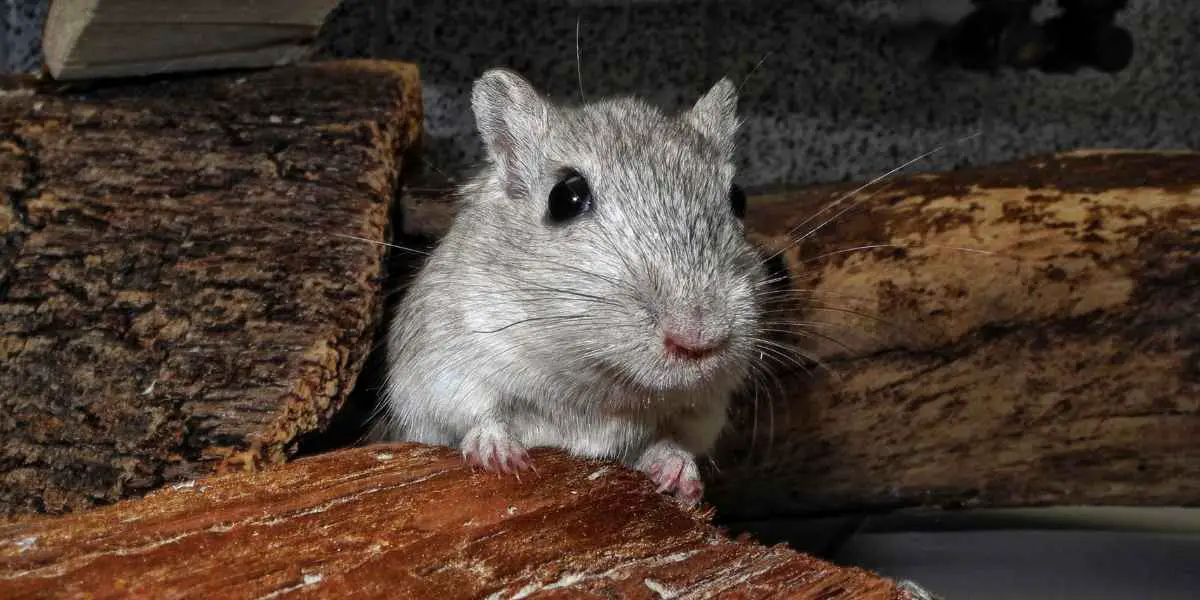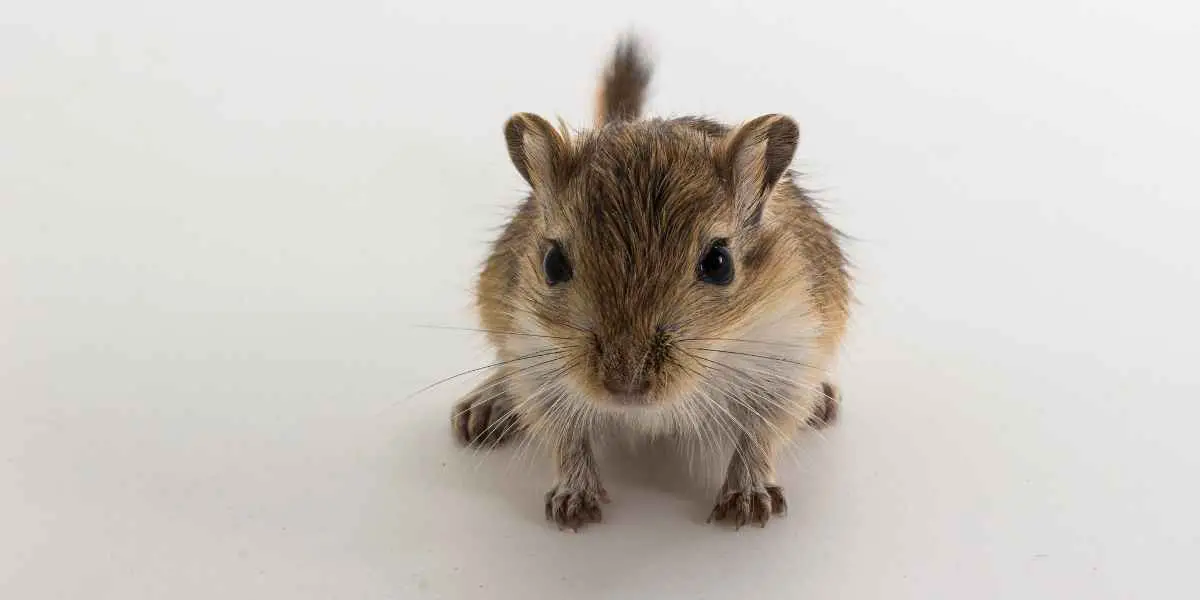Taking care of your gerbil’s health and happiness includes providing them with an optimal exercise routine. But how often should gerbils exercise? In this guide, we will unveil this mystery and provide you with all the information you need to ensure your gerbil gets the right amount of physical activity.
Table of Contents
Key Takeaways:
- Gerbils should exercise daily for 30-60 minutes to prevent becoming overweight or obese.
- In the wild, gerbils get exercise through activities like searching for food, digging burrows, running from predators, playing with other gerbils, and fighting.
- Captive gerbils should be provided with opportunities for exercise by gerbil-proofing a room or providing a solid-wood gerbil wheel or exercise ball.
- It is recommended to provide gerbils with at least an hour of exercise three times a week, but they should ideally exercise every day.
- Exercise can be in the form of exploring a room, running on a wheel, or digging for food.
The Importance of Exercise for Gerbils
Exercise for gerbils isn’t just a luxury; it’s a crucial component of their overall health and well-being. These naturally active creatures love to run around, and in the wild, they find themselves constantly on the move. Whether they’re searching for food, digging intricate burrows, evading predators, or enjoying the company of other gerbils, they’re always on the go. Captive gerbils, though, often don’t have as much exercise opportunity. However, it’s essential to ensure they have a setup that simulates their natural environment as closely as possible.
Typically, it’s recommended that gerbils get between 30-60 minutes of exercise every day to stave off obesity and keep their minds sharp. They depend on this time running around to not only burn calories and maintain a healthy weight but also to stay mentally stimulated. Without enough activity, they can quickly put on weight, and this could lead to various health issues, including heart disease.
So, what’s the perfect way to ensure your gerbil gets the exercise they want? There are numerous methods:
- Gerbil-proofed room: This setup provides an excellent opportunity for gerbils to explore, run around, and even try out new things. They’ll love having a space where they can sprint across the room, stick to their natural scent-marking habits, and just enjoy running around.
- Solid-wood gerbil wheels and exercise balls: While these are good tools and can be bought cheaply, they shouldn’t be the only means of exercise. Gerbils need a full range of activities for comprehensive physical and mental stimulation. , it’s important to point out that while they might sometimes find these tools enjoyable, it isn’t a replacement for a larger play area.
- Gerbil exercise pen: This is a short-term solution and works well when you aren’t able to gerbil-proof an entire room. The purpose of this pen is to give gerbils a safe, confined area to run around and play. Make sure they have access to water and rest areas.
Throughout the day, gerbils have a high level of energy, and they’re usually looking for something to do. If given the opportunity, they’ll want to be active. Therefore, it’s essential to put in the work and create a suitable environment for them. Whether it’s a dedicated room, an exercise pen, or a combination of both, the key is to make it as close to their natural habitat as possible. It’s easier said than done, but with a bit of effort, everything can fall into place. And remember, a healthy gerbil isn’t just about providing food and water; it’s about ensuring they have the time and space to be the active creatures they’re naturally meant to be.
| Gerbil Exercise Recommendations | Exercise Requirements for Gerbils | Gerbil Physical Activity Guidelines |
|---|---|---|
| Exercise daily for 30-60 minutes | Prevent obesity-related health problems | Ensure mental and physical stimulation |
| Provide opportunities for exploration and running | Maintain a healthy weight | Prevent boredom and enhance enrichment |
| Use solid-wood gerbil wheels or exercise balls | Stimulate the mind and prevent weight gain | Encourage bonding with owners |
To ensure the well-being of your gerbil, it is recommended to provide at least an hour of exercise three times a week. However, for optimal health, gerbils should ideally engage in physical activity every day. Exercise can take various forms, such as exploring a room, running on a wheel, or digging for food. It is essential to observe your gerbil’s behavior and preferences to determine the most enjoyable and effective exercise routines for them.
Additionally, gerbils need time outside of their cages for mental stimulation, exercise, and bonding with their owners. Providing supervised playtime in a safe, enclosed area or using a bathtub, bed, or counter/table surface can offer opportunities for these interactions. By incorporating various toys and structures during playtime, you can enhance enrichment and prevent boredom for your gerbil.

Understanding Gerbils’ Natural Exercise Behavior
To understand the optimal exercise routine for gerbils, it is essential to delve into their natural exercise behaviors. In the wild, gerbils engage in various activities that keep them physically active and mentally stimulated. These behaviors are important to replicate in captivity to ensure the overall well-being of your gerbil.
Gerbils in the wild spend a significant amount of time searching for food, digging burrows, running from predators, playing with other gerbils, and even fighting. These activities provide them with ample exercise, helping them maintain a healthy weight and prevent obesity. By mimicking these natural behaviors in their daily lives, captive gerbils can also enjoy the physical and mental benefits of exercise.
One way to provide optimal exercise for gerbils is to create an environment that allows for exploration and physical activity. This can be achieved by gerbil-proofing a room, removing any potential hazards, and ensuring proper ventilation. By giving your gerbil the freedom to roam and explore, you allow them to engage in their natural behaviors while also keeping them safe.
| Activities to include in the gerbil’s exercise routine: |
|---|
| – Exploring a room |
| – Running on a solid-wood gerbil wheel |
| – Digging for food |
It is essential for gerbils to have regular exercise to maintain their physical and mental well-being. Lack of exercise can lead to weight gain, poor health, and an increased risk of heart disease. Therefore, it is recommended to provide gerbils with at least an hour of exercise three times a week. However, ideally, they should have daily opportunities for physical activity.
Quotes:
“Gerbils are naturally active animals and need ample opportunities for exercise to thrive.”
Remember, exercise is not only crucial for your gerbil’s physical health but also for their mental stimulation and bonding with you. By allowing them supervised playtime outside of their cages in a safe and enclosed area, you give them the chance to explore new surroundings and interact with their environment. You can use a bathtub, bed, or a counter/table surface as play areas.
To enhance enrichment during playtime, consider providing various toys and structures that stimulate your gerbil’s curiosity and prevent boredom. This can include tunnels, hiding spots, and chew toys. It is important to note that while exercise balls can be used, gerbils should not solely rely on them for exercise. They should also have access to larger play areas to ensure optimal physical activity.
By understanding and replicating gerbils’ natural exercise behaviors, you can create an exercise routine that meets their needs and keeps them happy and healthy. So, create a stimulating environment, provide opportunities for exploration, and enjoy watching your gerbil thrive!
Gerbil-Proofing the Environment
Creating a safe exercise environment for your gerbil is paramount to their well-being. Gerbil-proofing a room allows them to explore and exercise freely, without encountering any risks or dangers. Before you let your gerbil out of their cage, it’s important to ensure that the space they will be in is secure and free from potential hazards.
Start by removing any small objects or items that could be chewed on or swallowed by your gerbil. This includes things like electrical cords, loose carpeting, and small toys. It’s also important to block off any escape routes, such as gaps under doors or openings in walls. Gerbils are natural burrowers and can easily slip through small spaces, so be thorough in checking for any potential escape routes.
Next, consider the ventilation in the room. Gerbils are sensitive to heat and humidity, so make sure the room is well-ventilated and at a comfortable temperature. Avoid placing the exercise area near drafts or direct sunlight, as extreme temperatures can be harmful to your gerbil. In addition, ensure that there are no toxic substances or plants in the area that your gerbil might come into contact with.
Once you have taken these precautions, you can start setting up the exercise area with toys and structures that will provide enrichment for your gerbil. This can include tunnels, climbing structures, and hiding spots. You can also scatter food or treats around the room for your gerbil to search for, mimicking their natural foraging behavior. By creating a safe and stimulating exercise environment, you can ensure that your gerbil has a happy and healthy exercise routine.
| Gerbil-Proofing Checklist: |
|---|
| Remove small objects that can be chewed or swallowed |
| Block off escape routes |
| Maintain proper ventilation and temperature |
| Check for toxic substances or plants |
| Add toys, structures, and hiding spots |
| Scatter food or treats for foraging |
The Role of Gerbil Wheels and Exercise Balls
Gerbil wheels and exercise balls are popular options for providing exercise opportunities within the confines of a cage or a controlled environment. Let’s explore their role in your gerbil’s exercise routine.
Gerbil wheels are designed to mimic the natural running behavior of gerbils in the wild. They provide a safe and secure environment for your gerbil to run and expend energy. Choose a solid-wood wheel with a solid surface that allows your gerbil to run without the risk of injury. Avoid using wire or mesh wheels that can cause harm to their delicate feet or tails. It’s essential to choose a wheel that is the appropriate size for your gerbil to ensure comfortable and safe running. Regular use of a gerbil wheel can help your furry friend maintain a healthy weight and prevent boredom.
| Gerbil wheel benefits: |
|---|
| Provides exercise for your gerbil’s physical well-being |
| Prevents weight gain and obesity |
| Stimulates natural running behavior |
| Helps prevent boredom and promotes mental stimulation |
Exercise balls are another popular option for gerbil exercise. These transparent balls allow your gerbil to explore their surroundings while providing a safe and secure environment. It’s important to choose a ball that is the appropriate size for your gerbil to ensure they can move freely without discomfort. Exercise balls can be used both inside and outside the cage, giving your gerbil the opportunity to roam and explore their environment. However, it’s important to note that exercise balls should not be the sole form of exercise. Your gerbil should have access to larger play areas, such as a room or a safe, enclosed space, to ensure they can engage in more natural behaviors.
In conclusion, gerbil wheels and exercise balls play a valuable role in providing exercise and mental stimulation for your gerbil. However, it’s important to remember that they should be used in conjunction with additional exercise opportunities, such as exploring a room or digging for food. By incorporating a variety of exercise options into your gerbil’s routine, you can help them maintain a healthy and happy lifestyle.

Recommended Duration and Frequency of Gerbil Exercise
Now that you understand the importance of exercise for gerbils, it’s time to determine the ideal duration and frequency to ensure they get the right amount of physical activity. Gerbils should exercise daily for 30-60 minutes to prevent them from becoming overweight or obese. In the wild, gerbils get their exercise through various activities such as searching for food, digging burrows, running from predators, playing with other gerbils, and even engaging in the occasional friendly fight.
To provide gerbils with opportunities for exercise in captivity, it’s important to gerbil-proof a room or provide them with a solid-wood gerbil wheel or exercise ball. These tools can help replicate the natural behaviors that gerbils engage in to stay active. It is recommended to provide gerbils with at least an hour of exercise three times a week, but ideally, they should exercise every day.
There are several ways to incorporate exercise into your gerbil’s routine. Gerbils can explore a room, run on a wheel, or even dig for food. These activities mimic their natural behavior and provide both physical and mental stimulation. Lack of exercise can lead to poor health and weight gain, which can contribute to heart disease. It is crucial to prioritize regular exercise for your gerbil’s well-being.
Aside from daily exercise, gerbils also benefit from time outside of their cages for mental stimulation, exercise, and bonding with their owners. You can achieve this through supervised playtime in a safe, enclosed area, or by using a bathtub, bed, or counter/table surface. It’s important to note that while exercise balls can be used, gerbils should not rely solely on them for exercise. They should have access to larger play areas to encourage natural movement and exploration.
| Recommended Duration | Recommended Frequency |
|---|---|
| 30-60 minutes per session | Daily |
Types of Exercise for Gerbils
Gerbils can engage in various types of exercise, and providing them with a diverse range of physical activities is crucial for their overall well-being. Offering different forms of exercise helps to keep them mentally stimulated, physically fit, and prevents boredom. Here are some options for optimal exercise routines for your gerbil:
- Exploring a room: Allowing your gerbil to freely explore a safe room is an excellent way to provide exercise. Ensure the room is gerbil-proofed and free from hazards. Let your gerbil roam, sniff around, and engage in natural burrowing behaviors.
- Using a gerbil wheel: A solid-wood gerbil wheel is a popular choice for exercise. Make sure the wheel has a solid surface to prevent any risk of injury. Place it securely in the cage, and your gerbil will happily run for long periods, getting the physical activity it needs.
- Digging for food: Distribute treats or hide their food in a shallow container filled with bedding or sand. Gerbils have an innate instinct to dig, and this activity helps stimulate their natural foraging behavior while providing exercise.
“Gerbils need exercise to stay healthy and prevent weight gain. A diverse exercise routine will keep them mentally stimulated and physically fit.”
Incorporating these exercise options into your gerbil’s routine will not only keep them physically active but also provide mental enrichment. Gerbils are naturally curious and will enjoy exploring their surroundings, running on a wheel, and engaging in foraging activities. Remember to supervise your gerbil during playtime and create a safe space to prevent any unwanted accidents.
Keep in mind that gerbils should not solely rely on hamster balls for exercise, as they should have access to larger play areas. Mix and match these exercise options to make sure your gerbil gets an enjoyable and well-rounded workout. By prioritizing their exercise needs, you’ll be ensuring their long-term health and happiness.
| Type of Exercise | Description |
|---|---|
| Exploring a room | Allowing your gerbil to roam a safe, gerbil-proofed room to stimulate natural behaviors and provide freedom of movement. |
| Using a gerbil wheel | Providing a solid-wood gerbil wheel for running, which assists in maintaining physical fitness. |
| Digging for food | Creating opportunities for your gerbil to dig and forage for treats or food, stimulating natural instincts. |
The Potential Risks of Inadequate Exercise
Failing to provide adequate exercise for your gerbil can have serious consequences for their health and well-being. Let’s explore the potential risks associated with a sedentary lifestyle.
Gerbils, like any other pet, require regular physical activity to maintain a healthy weight and prevent obesity. Without proper exercise, gerbils can become overweight or obese, which can lead to a range of health issues. Obesity in gerbils can contribute to heart disease, diabetes, and joint problems, which can significantly impact their quality of life.
| Potential Risks of Inadequate Exercise: |
|---|
| Weight gain |
| Heart disease |
| Diabetes |
| Joint problems |
Regular exercise not only helps keep gerbils physically fit but also provides mental stimulation and enrichment. Without enough exercise, gerbils can become bored, anxious, and stressed. This can manifest in destructive behaviors, such as excessive chewing or aggressive behavior towards cage mates.
“Exercise is crucial for gerbils to maintain a healthy weight, prevent obesity, and stimulate their minds. Without exercise, gerbils are at risk of developing various health issues and exhibiting undesirable behaviors.”
To prevent these risks, it is essential to provide your gerbil with regular exercise opportunities. Aim to provide at least 30-60 minutes of exercise daily, either within their cage or in a safe, enclosed space outside of their cage. This can include exploring a designated room, running on a solid-wood gerbil wheel, or digging for food in a designated digging box.
Key Takeaways:
- Inadequate exercise can lead to weight gain, heart disease, diabetes, and joint problems in gerbils.
- Regular exercise is crucial for physical fitness, mental stimulation, and prevention of destructive behaviors.
- Provide your gerbil with at least 30-60 minutes of exercise daily through various activities such as exploring, running, and digging.
By understanding the potential risks associated with inadequate exercise and taking the necessary steps to provide regular physical activity, you can ensure your gerbil leads a happy, healthy, and fulfilling life.
Bonding and Mental Stimulation during Exercise
Exercise is not only essential for your gerbil’s physical health but also plays a vital role in fostering a strong bond between you and your furry friend. By engaging in interactive playtime, you can create lasting memories and deepen your connection with your gerbil. Additionally, exercise provides mental stimulation, helping to keep your gerbil’s mind sharp and engaged.
During exercise sessions, consider incorporating a variety of toys and structures to keep your gerbil entertained and mentally stimulated. For example, you can provide tunnels, ladders, and hideouts for your gerbil to explore. These additions create an enriching environment that encourages your gerbil to engage in natural behaviors, such as climbing and burrowing.
Toys that promote mental stimulation, such as puzzle feeders or treat-dispensing toys, can also be introduced during exercise. These toys challenge your gerbil’s problem-solving abilities and provide a rewarding experience. Remember, a mentally stimulated gerbil is a happy gerbil!
Creating a Safe Exercise Environment
When allowing your gerbil to have supervised playtime outside of their cage, it’s important to create a safe and enclosed space. This prevents your gerbil from escaping or getting into any potential hazards. A bathtub, bed, or counter/table surface can serve as suitable areas for play, provided they are secured and free from dangers.
Before allowing your gerbil to explore these play areas, ensure that the space has been thoroughly gerbil-proofed. Remove any toxic plants, small objects that could be swallowed, and potential escape routes. Cover any exposed wires or outlets to prevent accidents. Always supervise your gerbil during playtime to ensure their safety and well-being.
| Benefits of Bonding and Mental Stimulation during Exercise |
|---|
| Strengthens the bond between you and your gerbil |
| Provides mental stimulation and prevents boredom |
| Encourages natural behaviors and promotes a healthy lifestyle |
| Creates opportunities for interactive play and shared experiences |
Playtime Outside the Cage
While exercise within the cage is important, gerbils also need time outside their enclosures to stretch their legs, explore new environments, and interact with their owners. Providing supervised playtime in a safe and enclosed area can greatly enhance their overall well-being.
One option for playtime is to use a bathtub, bed, or counter/table surface. These areas provide a confined space where gerbils can safely roam and play under supervision. Remember to remove any potential hazards and ensure there are no escape routes. Supervision is crucial to prevent accidents and ensure your gerbil’s safety.
During playtime, you can introduce various toys and structures to enrich the experience. This not only keeps gerbils engaged but also prevents boredom. Consider providing tunnels, ramps, and climbing structures for them to explore. You can also introduce puzzle toys, treat mazes, or puzzle feeders to stimulate their minds and provide mental enrichment.
| Recommended Toys for Playtime Outside the Cage | Benefits |
|---|---|
| Tunnels and burrows | Encourages natural behaviors, provides hiding places for mental stimulation, and promotes exercise |
| Cardboard boxes with holes | Provides a safe and cozy space to explore and hide in |
| Plastic balls with treats inside | Stimulates foraging instincts and keeps gerbils entertained |
| Wooden chew toys | Helps maintain dental health and relieves boredom |
Remember, gerbils should not be solely reliant on hamster balls for exercise. While they can be fun in moderation, they should have access to larger play areas to truly stretch their legs and explore. Playtime outside the cage not only provides physical exercise but also strengthens the bond between you and your gerbil. Make it a daily routine, and you will see your gerbil’s happiness and overall well-being thrive.
Preventing Boredom and Enriching Exercise
To make exercise sessions enjoyable and mentally stimulating for your gerbil, it is important to provide an enriching environment with a variety of toys and structures that cater to their natural instincts. Gerbils are curious creatures, and offering them diverse options for exploration and play will help keep them engaged and prevent boredom.
One way to enhance your gerbil’s exercise routine is by incorporating interactive toys. Choose toys that encourage physical activity, such as tunnels, climbing structures, and ladders. These will not only provide opportunities for running and jumping but also stimulate your gerbil’s natural instinct to explore and climb.
| Enrichment Toys | Description |
|---|---|
| Wooden Chew Blocks | A safe and natural way for your gerbil to keep their teeth healthy |
| Hideouts and Burrows | Give your gerbil a sense of security and privacy while encouraging their burrowing behavior |
| Exercise Balls with Treat Dispensers | Combine exercise with mental stimulation by filling the ball with treats for your gerbil to discover while rolling |
| Running Wheels | Provide a solid-wood wheel for safe running and exercise, ensuring it is large enough for your gerbil’s body |
Another idea is to create a digging box filled with safe materials like shredded paper or non-toxic bedding. Gerbils naturally enjoy digging and foraging for food, and this activity will allow them to satisfy their instincts while getting exercise. Remember to always supervise your gerbil during digging to ensure safety and prevent them from accidentally ingesting harmful materials.
Lastly, consider providing your gerbil with options for social interaction. Gerbils are social animals and enjoy playing with others. If you have multiple gerbils, ensure they have a suitable sized enclosure that allows for interaction and play. If your gerbil is the only one in the household, you can still provide interaction by engaging in supervised playtime with them. Use your hands or soft toys to mimic playful interactions, and observe how your gerbil reacts and engages with you.
By incorporating these enrichment ideas into your gerbil’s exercise routine, you can ensure that they not only stay physically fit but also mentally stimulated and content. Remember to regularly rotate and introduce new toys and structures to keep their environment fresh and exciting. Your gerbil will thank you with their active and happy nature!
Conclusion
Regular exercise is a vital aspect of gerbil care, contributing to their overall health, happiness, and longevity. By following the exercise recommendations and providing enriching activities, you can ensure your gerbil leads a healthy and fulfilling life.
Gerbils should exercise daily for 30-60 minutes to prevent becoming overweight or obese. In the wild, gerbils get exercise through activities like searching for food, digging burrows, running from predators, playing with other gerbils, and even fighting. It’s important to replicate these natural behaviors in captivity to provide an optimal exercise routine for your gerbil.
There are several ways to provide exercise opportunities for your gerbil. Gerbil-proofing a room is one option, ensuring it is safe and stimulating for exploration. A solid-wood gerbil wheel or exercise ball can also be used to provide physical activity. It is recommended to provide gerbils with at least an hour of exercise three times a week, but ideally, they should exercise every day.
Exercise can take various forms, including exploring a room, running on a wheel, or digging for food. Lack of exercise can lead to poor health and weight gain, which can contribute to heart disease. Additionally, gerbils need time outside of their cages for mental stimulation, exercise, and bonding with their owners. This can be achieved through supervised playtime in a safe, enclosed area or by using a bathtub, bed, or counter/table surface. Various toys and structures can be provided during playtime to enhance enrichment and prevent boredom.
It is important to note that gerbils should not be solely reliant on hamster balls for exercise, as they should have access to larger play areas. By prioritizing your gerbil’s exercise routine and providing a stimulating environment, you are ensuring their well-being and promoting a happy, active life for your furry friend.
FAQ
Q: How often should gerbils exercise?
A: Gerbils should ideally exercise every day for 30-60 minutes to prevent becoming overweight or obese.
Q: What activities do gerbils engage in for exercise in the wild?
A: In the wild, gerbils get exercise through activities like searching for food, digging burrows, running from predators, playing with other gerbils, and fighting.
Q: How can I provide exercise opportunities for my gerbil in captivity?
A: You can gerbil-proof a room or provide a solid-wood gerbil wheel or exercise ball to give your gerbil opportunities for exercise.
Q: How often should I provide exercise for my gerbil?
A: It is recommended to provide gerbils with at least an hour of exercise three times a week, but they should ideally exercise every day.
Q: What are some examples of exercise that gerbils can do?
A: Exercise for gerbils can be in the form of exploring a room, running on a wheel, or digging for food.
Q: What are the risks of not providing enough exercise for my gerbil?
A: Lack of exercise can lead to poor health, weight gain, and heart disease in gerbils.
Q: Can gerbils have playtime outside of their cages?
A: Yes, gerbils can have supervised playtime outside of their cages in a safe, enclosed area such as a bathtub, bed, or counter/table surface.
Q: How can I prevent boredom during gerbil exercise?
A: You can provide various toys and structures to enhance enrichment and prevent boredom during gerbil exercise.




